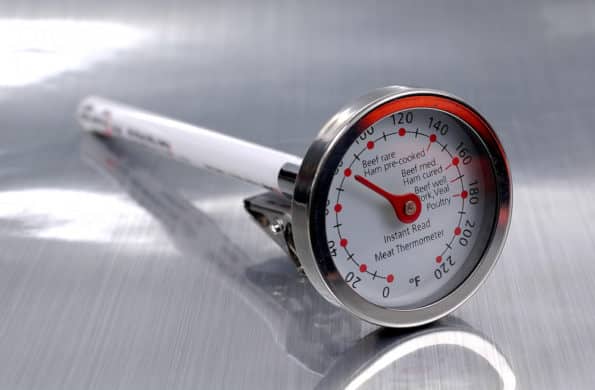Prepared Food Safety is Critical for Managing Risk, Maximizing Opportunities

Join Michael Williams and Joe Sielski for “HACCP Plan – Ideas on Having a Strong Program for Prepared Meals and Deli” at Supermarket Sense 2016, September 21-22 in Conyers, Ga.
Offering prepared and semi-prepared foods at retail supermarkets presents a great opportunity for grocers but also presents a potential for great risk if the food safety program is not properly executed. That is why these programs are best viewed as an investment rather than an expense. Ensuring viable food safety is necessary for food retailers to build their prepared foods business and ultimately engage their customers.
A good food safety program also encourages all employees to pull toward the end goal, bolstered by built-in training that can help empower workers to make the right decisions for the good of the business. At the heart of a food safety program is instilling practices that control conditions where contamination can take place, namely in the areas of time, temperature, cleaning and sanitizing.
The Hazard and Critical Control Point Process (HACCP) is a key process for food service safety. HACCP delineates the best ways to organize and document food production to ensure safety. Done correctly, HACCP helps employees ensure safe food production, from tracking to monitoring to documenting. Tools can range from electronic monitors to software programs to paper forms.
While the plan is important, it is only effective if it is implemented successfully. Grocers need to develop rules that are simply sophisticated – sophisticated enough to meet all safe production needs but basic enough that employees can carry out processes with minimal wasted energy and steps.
Take cooling requirements, for instance. Prepared foods must be stored below 40 degrees. They also should be cooled according to a minimum two-step process, one if possible. A HACCP approach establishes intervals for checking and documenting the cooling process as well as ensuring the temperature is correct for stored products. Furthermore, employees should feel empowered to contact the manager if the process is not going according to plan, to allow for countermeasures or even disposing of food.
The commitment to food safety all goes back to understanding the level of trust customers are placing in supermarket products — whether packaged, semi-prepared, or fully prepared. Shoppers are purchasing this food for their families and their families, in many cases, include members who are more susceptible to foodborne illnesses, particularly those younger than 5 or 65 and older.
That is also why a good food safety plan encourages customer engagement. Using good customer service measures such as offering packaging to help retain heat or cold or offering advice on how quickly to refrigerate a product helps instill trust that good back-of-the-house procedures also are in place.
Supermarket Sense 2016 will bring together retail operations, thought leaders and dedicated food retail industry professionals for a comprehensive and collaborative training event next month in the Atlanta metro area. Sponsored by Hillphoenix, Unified Brands, Datassential and Harold Lloyd Presents, the two-day event will be held in Conyers, Ga. on September 21-22.